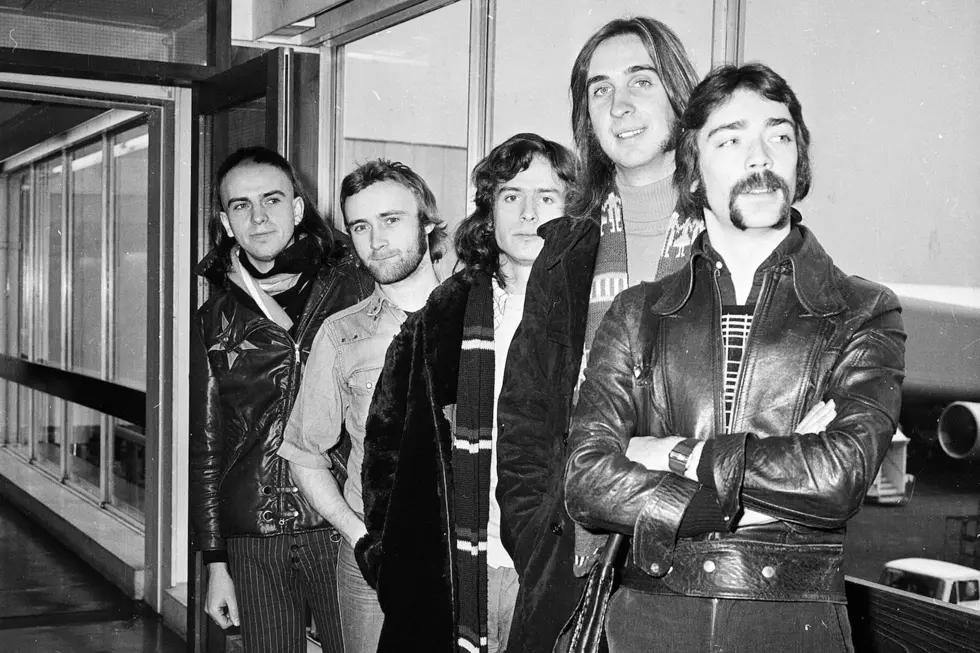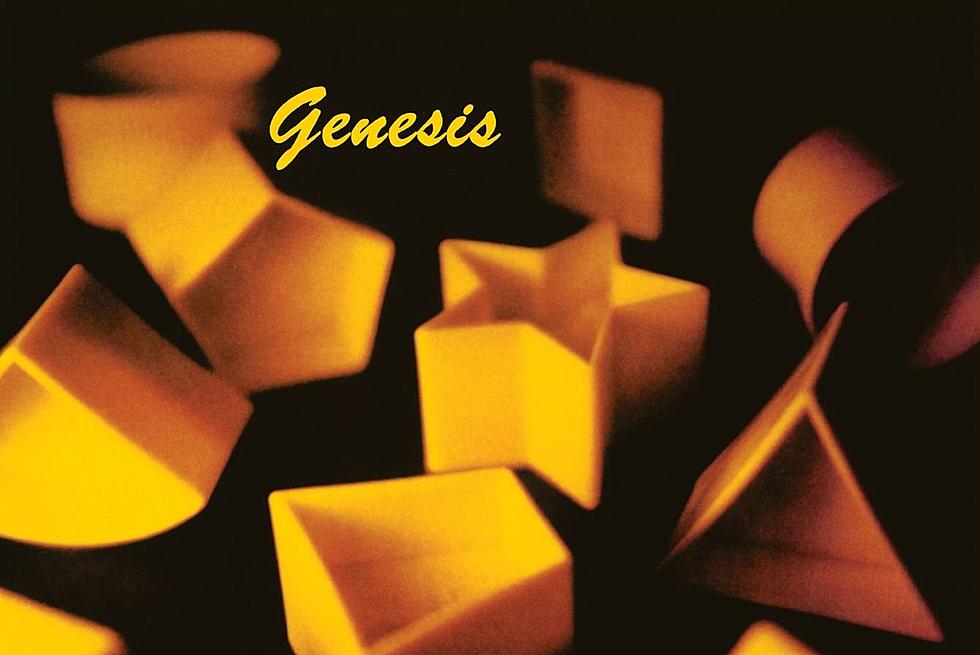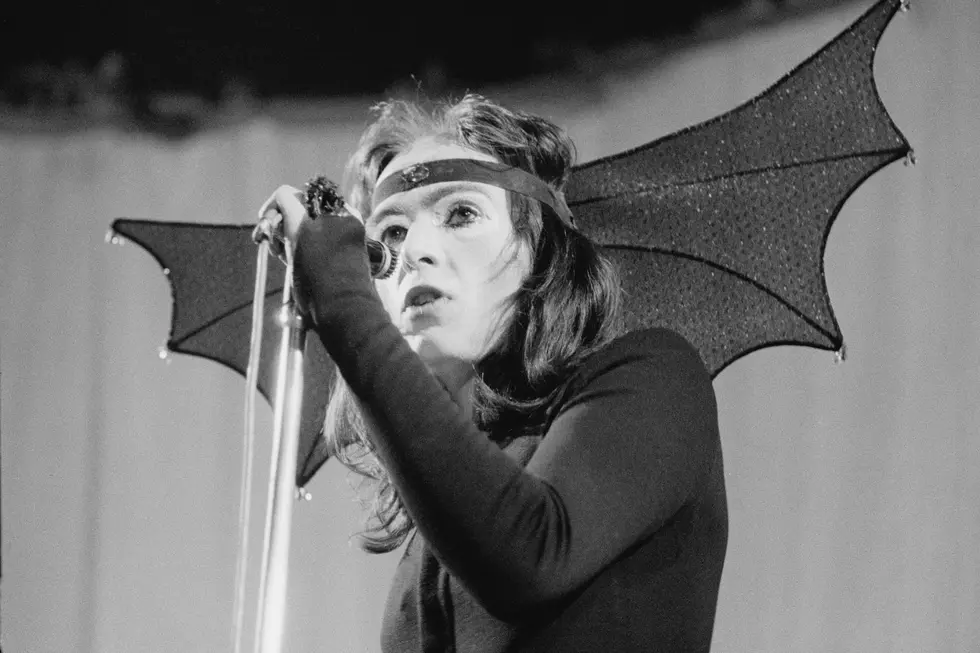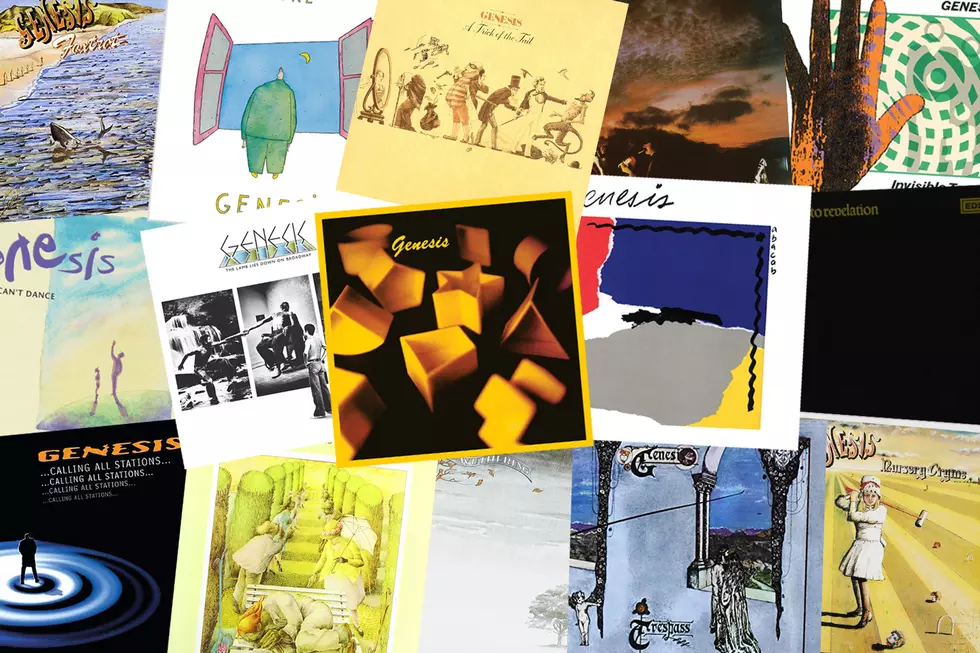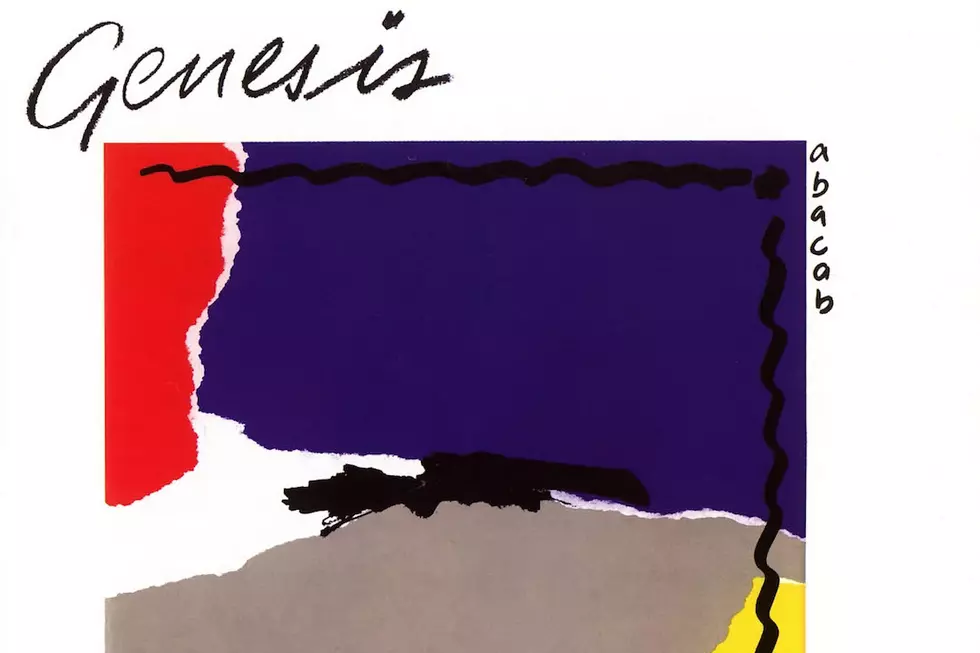
When Genesis Mixed Prog and New Wave on ‘Abacab’
Popular opinion places the terminating line between Genesis' prog and pop eras at the moment Peter Gabriel packed up his flower outfit and split, but the truth is, the group underwent a slower evolution.
In fact, a fairer demarcation is really when producer David Hentschel, who had up to that point worked on all of Genesis’ post-Gabriel albums, left after 1980’s Duke. That opened the door for Hugh Padgham, who engineered Abacab after working with Phil Collins on his Face Value solo debut.
Padgham would go on to collaborate on the rest of Genesis’ '80s-era output as they evolved into radio-ready, chart-topping regulars. “It was a very conscious decision to try and break some of the Genesis traditions – get rid of the reprises, the extended solos, the big choruses and tambourines and everything,” Tony Banks told CBS in 2015.
Genesis tended to offer overstuffed, esoteric material (occasionally with too many words or too much music ... or both) early on. Abacab, which was released on Sept. 14, 1981, changed all that with a canny melding of New Wave synth sounds – crunchy and stripped down, they are as piercing as any guitar riff — and a slightly more straightforward lyrical aesthetic.
The title track, which elongates into a thrilling rhythmic interlude that allows Banks a rare moment of modern-day free-form improvisation, remains Genesis' most perfect mix of these old and emerging styles. (It's also one of their more mysterious moments, with lyrics that come off like cellophane-wrapped gobbledygook and a title that may or may not refer to its song structure.)
Listen to Genesis' 'Abacab'
Not all of it worked, in particular the gratingly repetitive "Whodunnit?," which was supposedly a tribute to the Sex Pistols. But "Dodo/Lurker" had a rangy menace, while "Keep It Dark" employed striking new rhythmic ideas. Then there was "Another Record," which seemed to take a head-on approach to Genesis' worries about becoming caricatures of their former musical selves.
With the Top 40 hit "Man on the Corner," Genesis continued a turn toward more melancholic balladry that had begun with 1978's "Follow You Follow Me" and continued into 1980's "Misunderstanding." Elsewhere, "No Reply at All" was a Top 40 hit too but found Genesis stirring in still more new instrumentation with the addition of members of Earth, Wind & Fire. “Who said we can’t have horns on it?" Collins later mused in the Genesis interview with CBS. "It’s our fucking record! So, we did it, and people hated it."
The anti-maximalist approach of Abacab was initially met on tour by a shower of boos. But Collins said Genesis were determined to stand their ground. "We decided to put a few tripwires in front of us and avoid doing some of the things we'd be expected to do," he told the New York Times in 1983.
"Where before Tony might put both hands on the keyboard and this huge wash of notes would come out, now he'd deliberately do something with just one finger," Collins added. "It helped us break out of something we were perhaps getting too deeply into. On the early Genesis albums, you hear everybody playing hell-for-leather. Now, having proved that we can almost do that, the pressure is off."
Eventually, Genesis began replacing those more traditional older fans with new ones, as Abacab rose to No. 1 in the U.K. and peaked at No. 7 in the U.S., their first stateside Top 10 album. "It really was time to cut with the past a bit," Mike Rutherford told CBS. "It was just time to be a bit braver."
Genesis Solo Albums Ranked
See Phil Collins in Rock’s Craziest Conspiracy Theories
More From Ultimate Classic Rock
